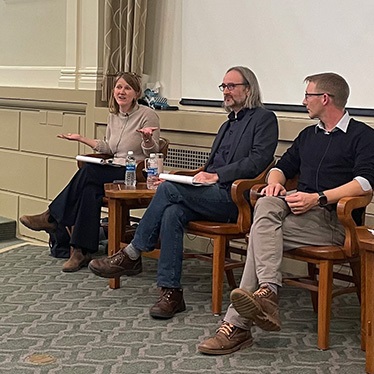Remote Humphrey project supports Congressional voting by proxy
September 14, 2020
 Marco Konopacki was looking forward to
closing out his Humphrey Fellowship year working in House Majority Leader Steny
Hoyer’s Washington, D.C., office. But the novel coronavirus pandemic upended
his plans, and he flew home to Brazil. There he, like the rest of the Maxwell
School’s 2019 cohort, conducted his professional affiliation remotely.
Marco Konopacki was looking forward to
closing out his Humphrey Fellowship year working in House Majority Leader Steny
Hoyer’s Washington, D.C., office. But the novel coronavirus pandemic upended
his plans, and he flew home to Brazil. There he, like the rest of the Maxwell
School’s 2019 cohort, conducted his professional affiliation remotely.
The pandemic also changed Konopacki’s project with Rep. Hoyer, a democrat who has represented Maryland’s 5th congressional district since 1981. “My original proposal was to analyze digital tools or digital approaches the House was working on to open up public participation,” he said. “That would have been a remarkable experience for me." Instead, Konopacki worked with Rep. Hoyer on a project that evolved out of restrictions of the global pandemic. Rep. Hoyer was among six members of the bipartisan Virtual Congress Task Force developing a policy to allow proxy voting when Congress could not meet in person.
“My internship got narrowed for a very specific activity that was a very good contribution,” Konopacki said. “I worked to support the activity to go remote.”
Konopacki was among 11 Hubert H. Humphrey fellows from 10 emerging democracies and developing countries who spent the year at the Maxwell School partaking in graduate study, professional development and cultural exchange. Professional affiliations, typically six-week internships, are a requirement of the Humphrey program.
Konopacki prepared research that supported the May 15 passage of House Resolution 965, which authorizes remote voting by proxy during the public health emergency due to the coronavirus. Congressional representatives voting by proxy must send letters electronically to the House clerk. They must identify their proxy designee and instruct the proxy how to vote on each question on the floor. The proxy rule is temporary, but it can be extended during the health emergency.
Some Republicans opposed the resolution, arguing that remote voting “would break up democracy.”
In some countries, lawmakers were working even before the pandemic to update technology and procedures to legislate during emergencies. “In Brazil we got entirely remote action, including meetings and voting,” Konopacki said. “That happened because the House was getting prepared in prior years and getting the staff to support it.”
The pandemic showed Congress “they must move forward on digital proceedings,” he said. “Even though they did not implement the most innovative ways, we got at least some small pieces to spark this normative view in Congress.”
09/14/20
Related News
School News

Apr 2, 2025
School News

Mar 26, 2025
School News

Mar 24, 2025
School News

Mar 18, 2025